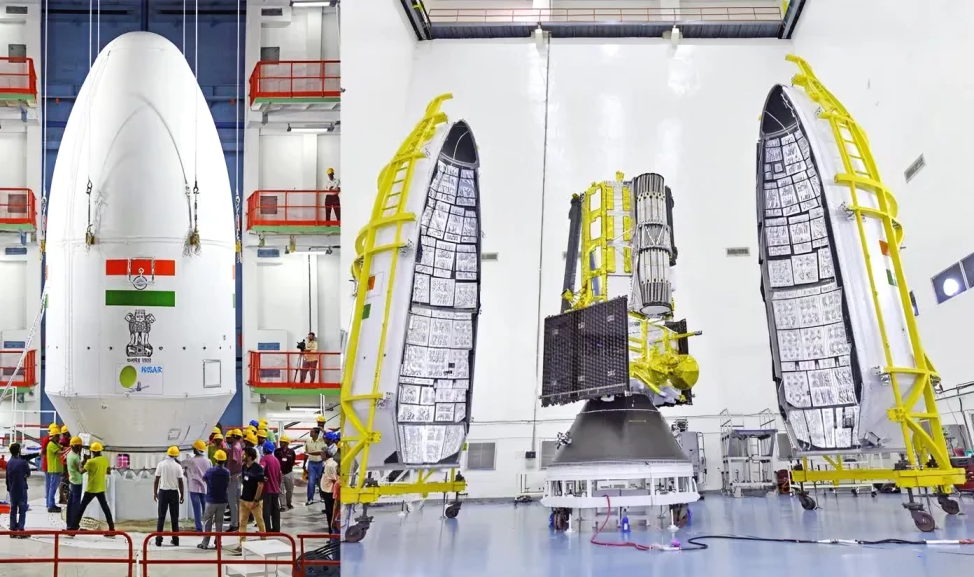India to Launch NISAR Earth-Observation Satellite with ISRO-NASA Collaboration

India is gearing up for the highly anticipated launch of the NASA-ISRO Synthetic Aperture Radar (NISAR) satellite, set for Wednesday, July 30, 2025, at 5:40 pm IST. The satellite will be launched from the Satish Dhawan Space Centre in Sriharikota aboard the GSLV-F16 rocket. This mission is a significant milestone as it represents the first Earth observation collaboration between the Indian Space Research Organisation (ISRO) and NASA.
The countdown commenced at 2:10 pm on Tuesday. The satellite, weighing 2,392 kg, will be placed in a sun-synchronous orbit and is designed to scan the entire globe every 12 days. Featuring NASA’s L-band and ISRO’s S-band radar systems, NISAR will offer high-resolution, all-weather, day-and-night imaging across a 242 km swath. This dual-frequency radar setup enables the satellite to detect subtle surface changes with centimeter-level accuracy.
ISRO has noted that NISAR is the first dual-band radar satellite to be launched with a GSLV rocket into a sun-synchronous orbit, which is typically used for PSLV missions. The satellite's innovative SweepSAR technology will allow it to gather detailed data on various Earth phenomena, including glacier movement, earthquake-induced deformation, soil moisture changes, storm patterns, vegetation dynamics, and shoreline alterations.
The NISAR mission is poised to significantly contribute to global climate change studies, environmental monitoring, infrastructure stress evaluation, and disaster management initiatives. It will also aid real-time applications such as ship detection, surface water mapping, and agricultural monitoring.
ISRO Chairman Dr. V Narayanan has confirmed that the mission is the outcome of over a decade of technical collaboration between ISRO and NASA’s Jet Propulsion Laboratory. He emphasized the importance of NISAR as the first ISRO-NASA mission focused entirely on Earth observation, heralding a new era of high-precision, joint space science.
This ambitious endeavor underscores India’s growing capabilities in space technology while enhancing global partnerships for sustainable Earth science.



















